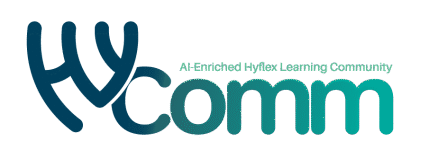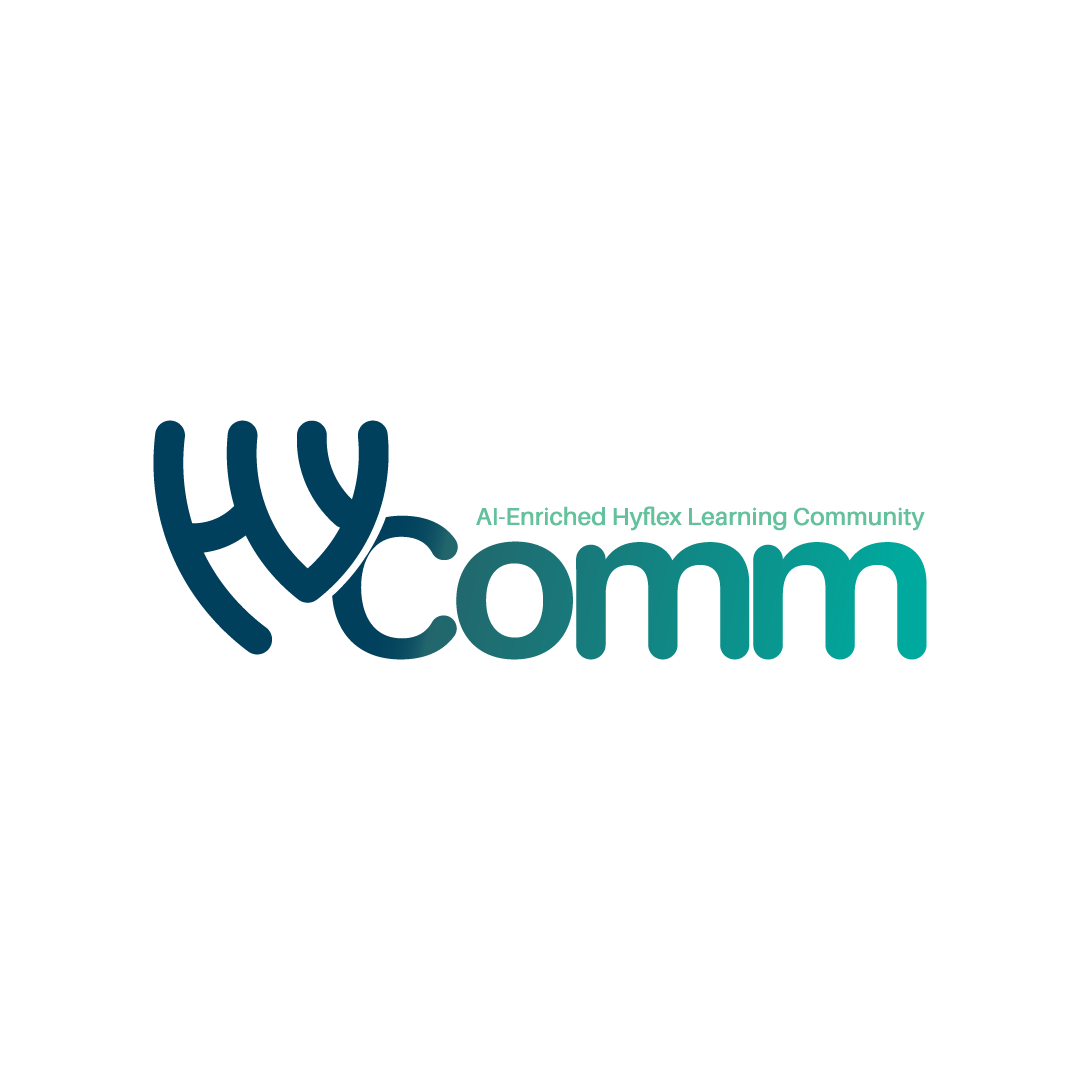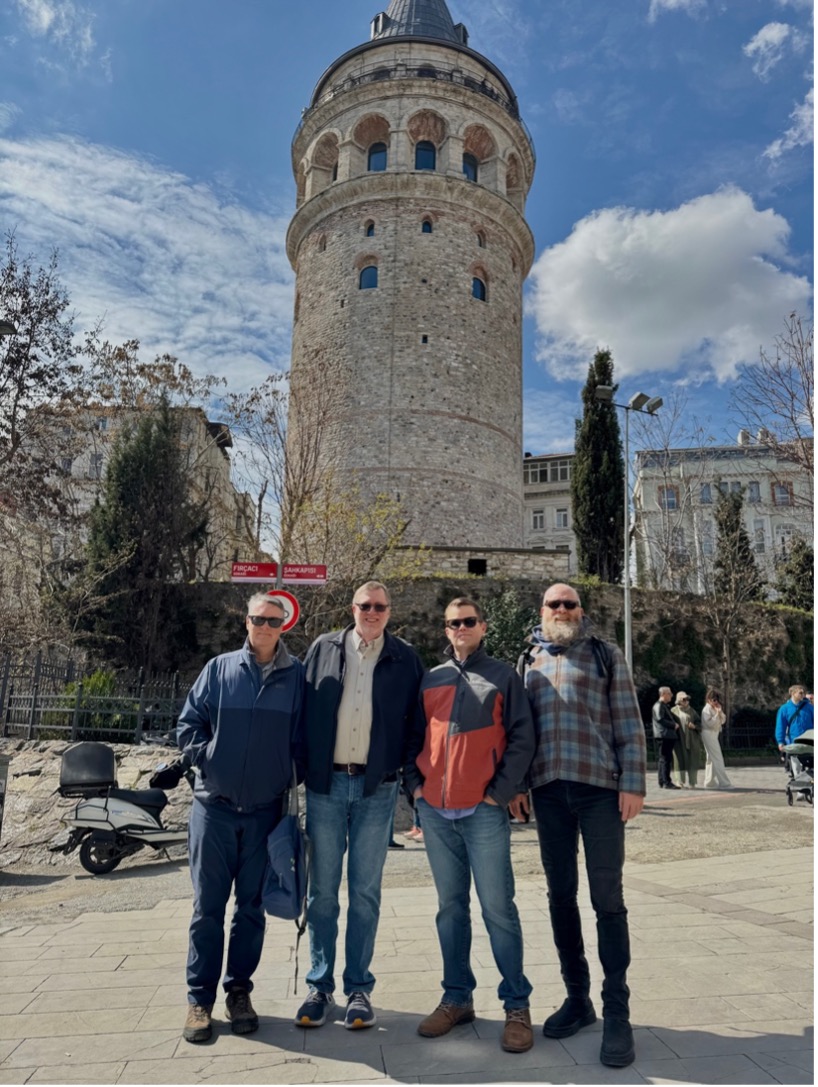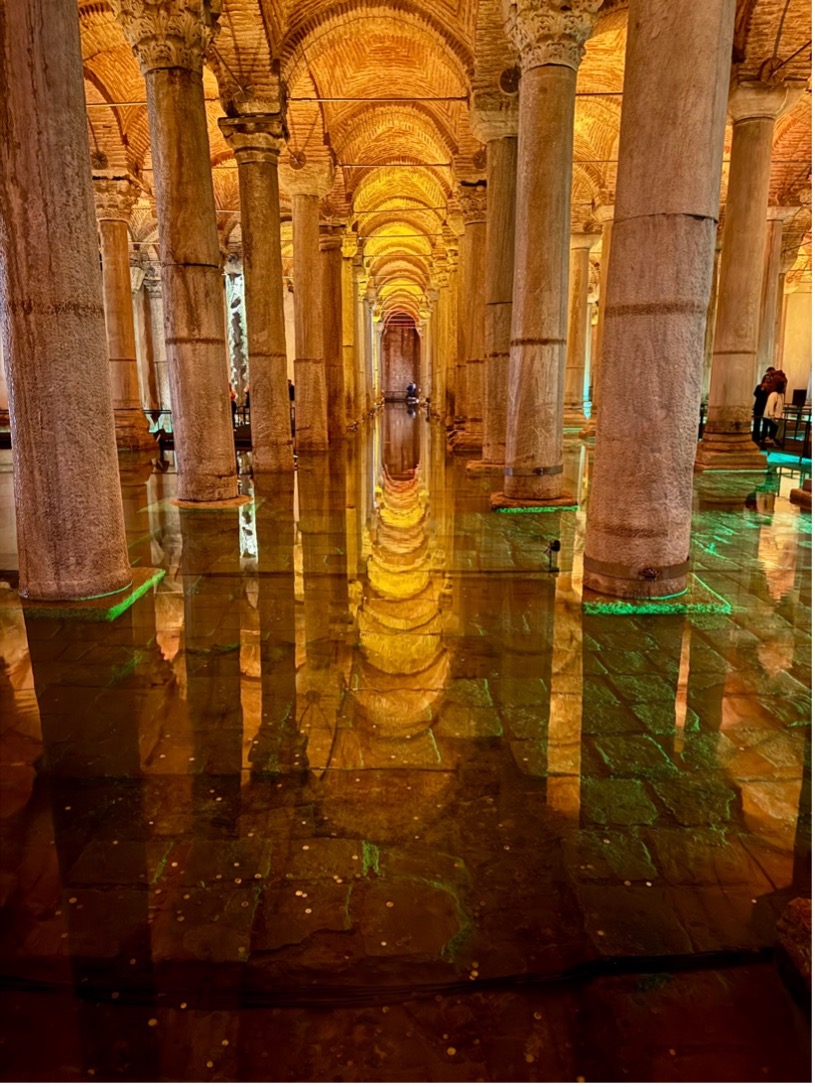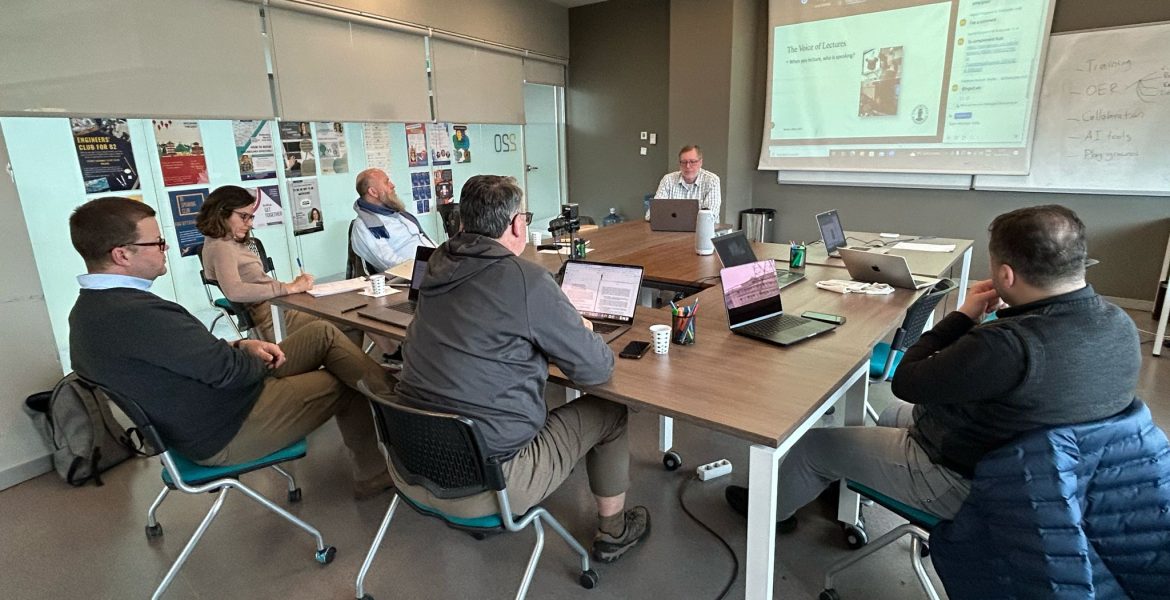
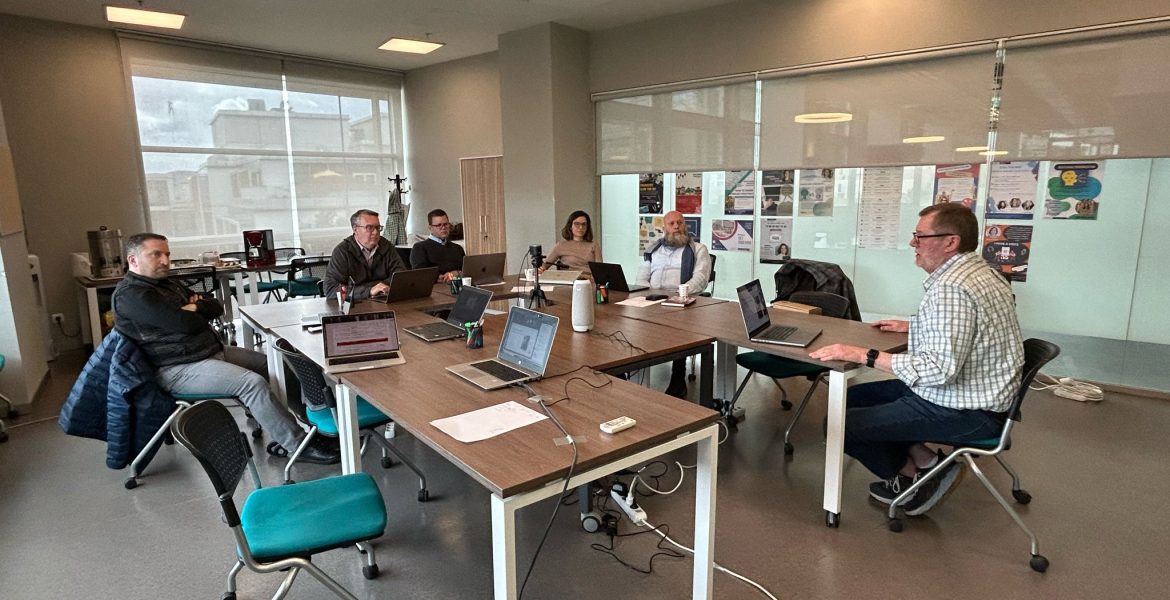
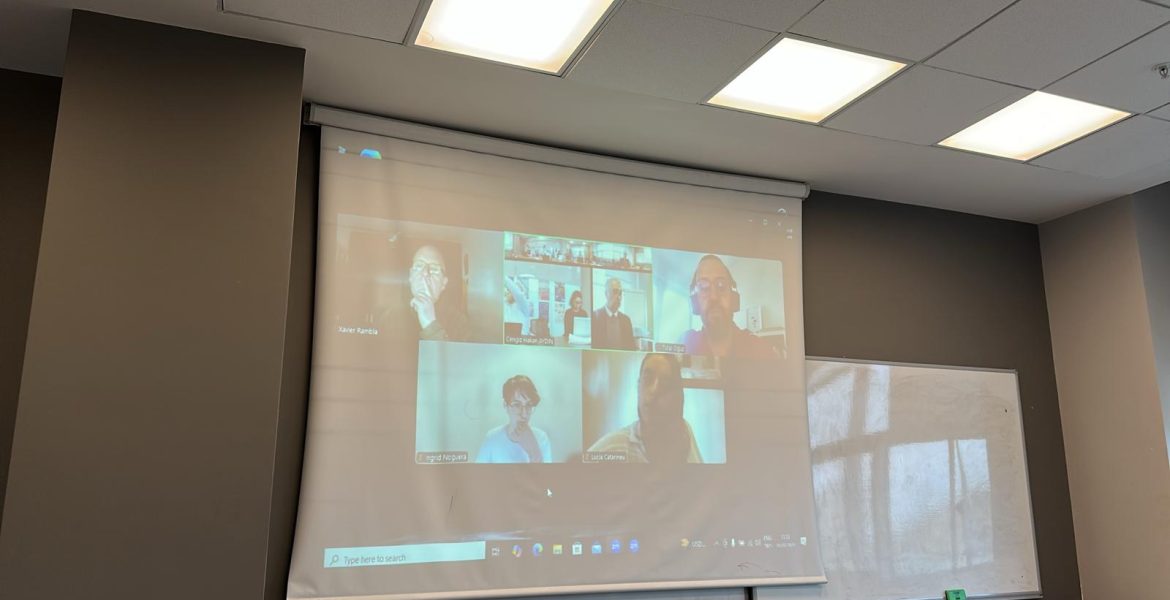
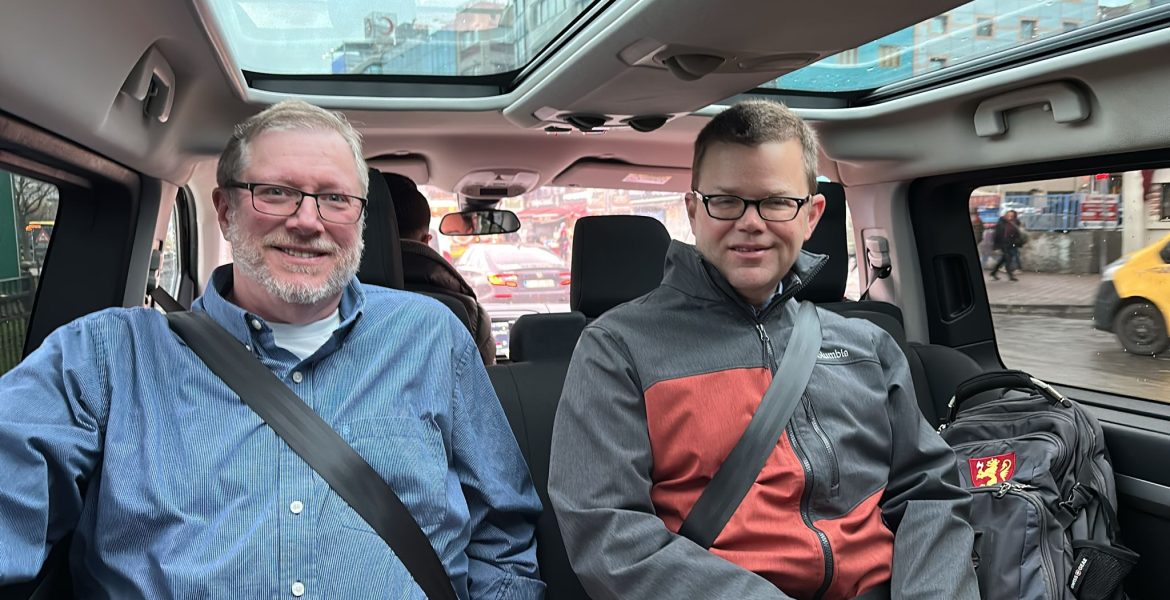
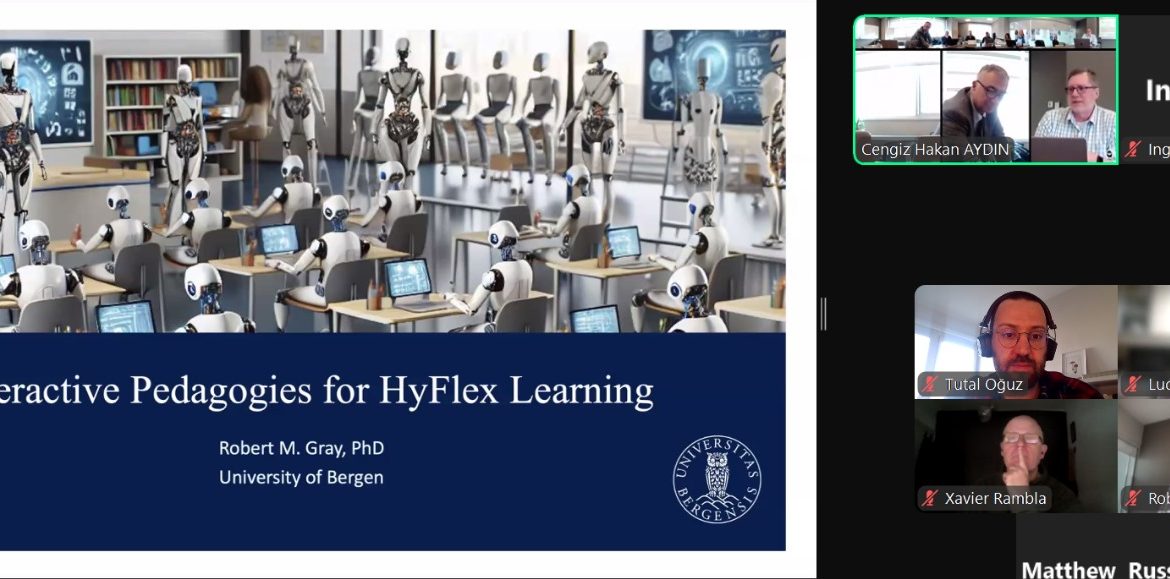
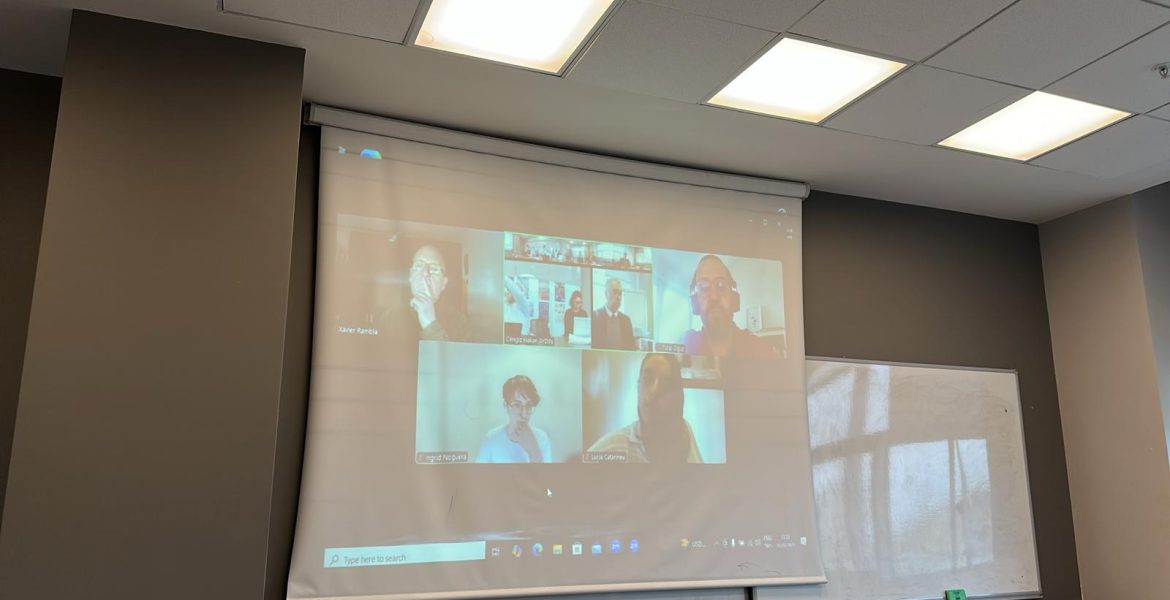
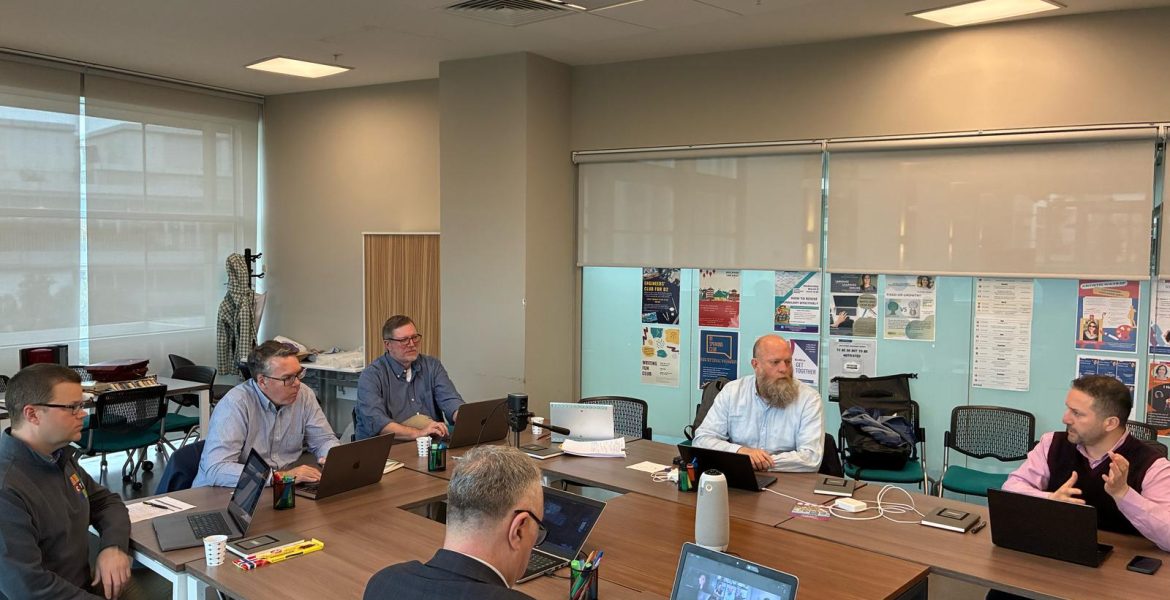
The HyComm Co-Creation Event
A very important step in the development of the HyComm project happened in Istanbul last week, where we met to hold a “co-creation event” intended to collaboratively construct a plan for the training modules and other resources the project set out to produce. HyComm is a collaboration between the University of Bergen (UiB) in Norway, Özyeğin University (OZU) in Turkey, the Autonomous University of Barcelona (UAB) in Spain, the European Development Institute (EDI) in Belgium, and EFTA, an NGO in Turkey.
The meeting was hosted by Özyeğin University, which is located in the northeastern part of Istanbul, and the meetings were led by Hakan Aydin, the Director of the Office of Learning and Teaching Enhancement (OLTE) at OZU. Other in-person attendees included Tanju Erdem (OZU), Bahar Hasirci (OZU), Tufan Adiguzel (EFTA), Kenan Dikilitaș (UiB), and myself. In addition, we had visitors from the US via their positions as Research Associates in the TeLEd research group at UiB: Brian Beatty (San Francisco State University) and Matt Russell (University of Texas at Austin). Online attendees included Ingrid Noguera (UAB), Xavier Rambla Marigot (UAB), Lucía Catarineu (UAB), Serap Keles (University of Stavanger), and Oğuz Tutal (EDI).
The primary purpose of the meeting was to collectively decide on the list of training modules to be produced, who would be responsible for creating each module, and a basic design template for the modules to help standardize the structure of the modules. We also made decisions about the digital platforms and tools we would use to build and deliver those modules.
To do this, however, we had to develop a deep and common understanding about HyFlex learning and how AI might be used to help instructors more easily and efficiently develop HyFlex learning designs. Therefore, the first day began with a presentation by Brian Beatty, perhaps the world’s leading figure in the world of HyFlex learning. That was followed by presentations by Ingrid Noguera, Serap Keles, and Kenan Dikilitaș on recent research about HyFlex, both in regard to the literature and to the experiences of university teachers at our partner universities. The rest of the first day was spent on the technical specifications of the platform.
On the morning of second day, Matthew Russell talked about the many ways that AI can help us and participating instructors in the design and development of HyFlex learning experiences, and I talked about the important pedagogical issues we need to be careful not to lose sight of as we venture down these exciting digital rabbit holes. Brian Beatty then pulled everything together with a talk on the intersection of HyFlex and AI. The afternoon was spent on mapping out the plans for the modules.
On the third day, we continued our discussion of the modules, including what the final list of topics would be and possible design templates. This last piece was led by Hakan Aydin’s previous work on module design. The day ended with a discussion that ultimately led to assignments of responsibilities for each module and the setting of plans for the project’s next steps.
Overall, it was a very productive and rewarding week, with the days before and after the formal meeting spent in preparation discussions with the group from UiB (Kenan, Brian, Matt, and myself), which also continued each day at the breakfast table, on the rides to and from OZU, and at dinner. We also found some time to experience the beauty of Istanbul.
